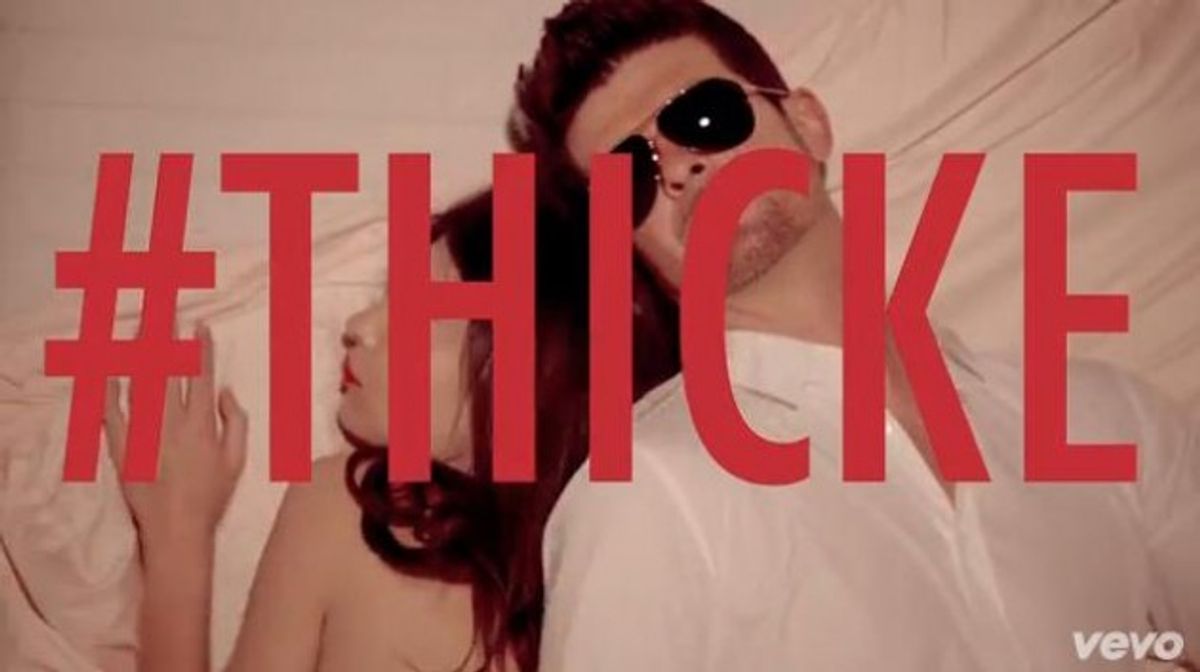On Thursday, Marvin Gaye’s family won their copyright suit against Robin Thicke and Pharrell Williams after a jury ruled that their 2013 hit “Blurred Lines” (also featuring T.I.) was too similar to Marvin Gaye’s 1977 hit “Got to Give it Up.” The family was awarded over $7.3 million -- a record high judgment for this sort of suit -- and is in the process of seeking an injunction to halt sales of the song, which will give them bargaining power regarding future royalties.
And it turns out that “Blurred Lines” isn’t the only song the family has suspicions about. "I'm not going to lie. I do think they sound alike,” Marvin Gaye's daughter Nona told ET, referring to the likenesses between Pharell’s smash hit “Happy” and Gaye’s “Ain’t That Peculiar.” However, for now, they aren't planning to pursue legal action. “We’re not in that space,” added Marvin’s ex-wife Janis Gaye. “We’re just in the moment today and we’re satisfied.”
"Right now, I feel free,” Nona Gaye told reporters, according to the AP. “Free from … Pharrell Williams and Robin Thicke’s chains and what they tried to keep on us and the lies that were told.”
Following the verdict, Williams, Thicke and T.I. released a statement saying that they are "extremely disappointed in the ruling made today, which sets a horrible precedent for music and creativity going forward. "Blurred Lines" was created from the heart and minds of Pharrell, Robin and T.I. and not taken from anyone or anywhere else. We are reviewing the decision, considering our options and you will hear more from us soon about this matter."
Because this verdict in particular depended on the very fine line between homage and theft, some critics and experts are decrying the verdict as a threat to creative expression. As intellectual property attorney Glen Rosthein told the Washington Post, the decision sets a bad precedent because “paying homage to musical influences was an acceptable, and indeed commonplace way of conducting business and even showing respect for one’s musical idols, [but] after today, doubt has been cast on where the line will be drawn for copyright infringement purposes.” Another intellectual property lawyer, Lawrence Iser, expressed a similar opinion in the New York Times, saying: "It will cause people who want to want to evoke the past to perhaps refrain from doing so. Rather than helping to progress the arts, it is a step backward.”

Shares